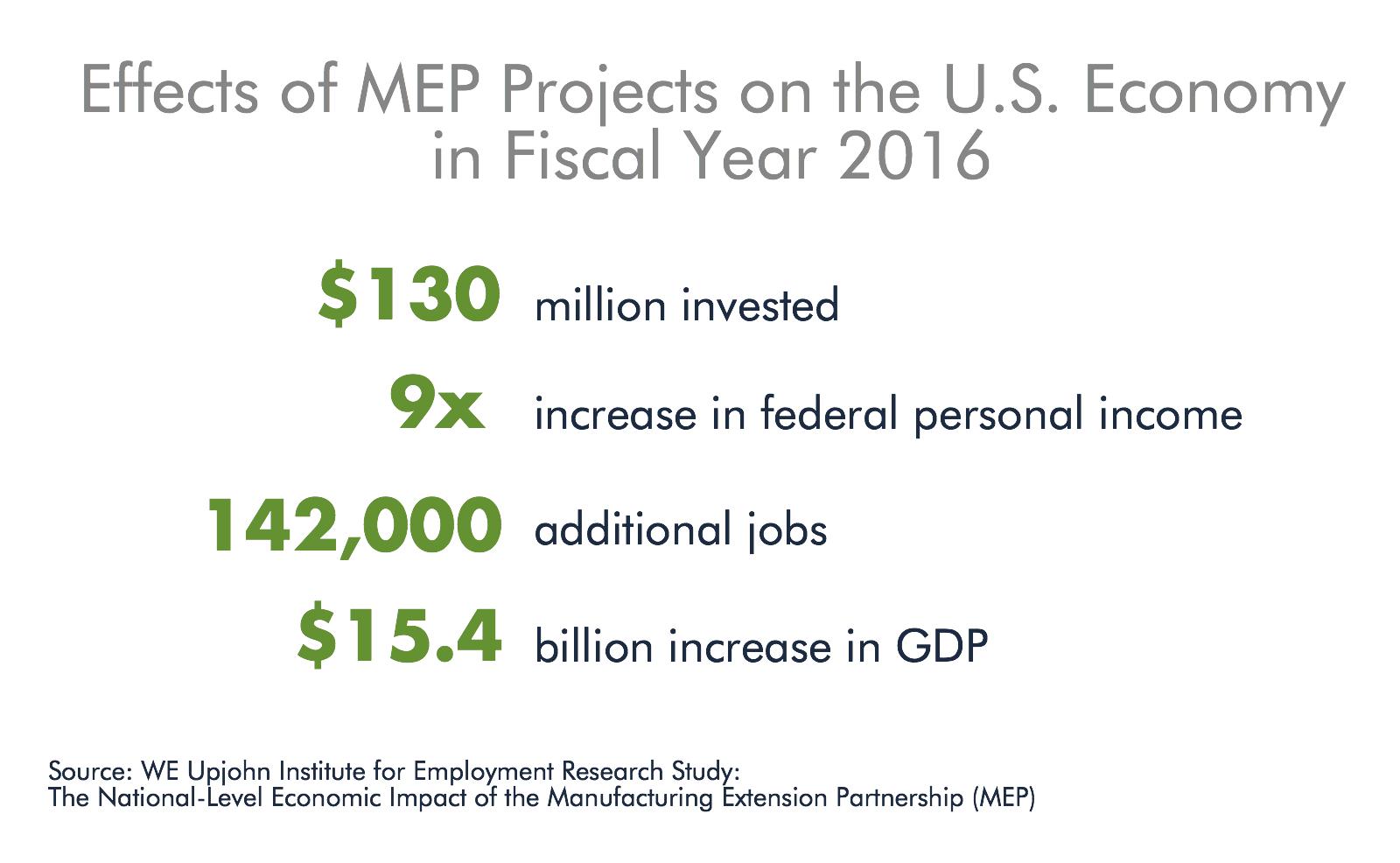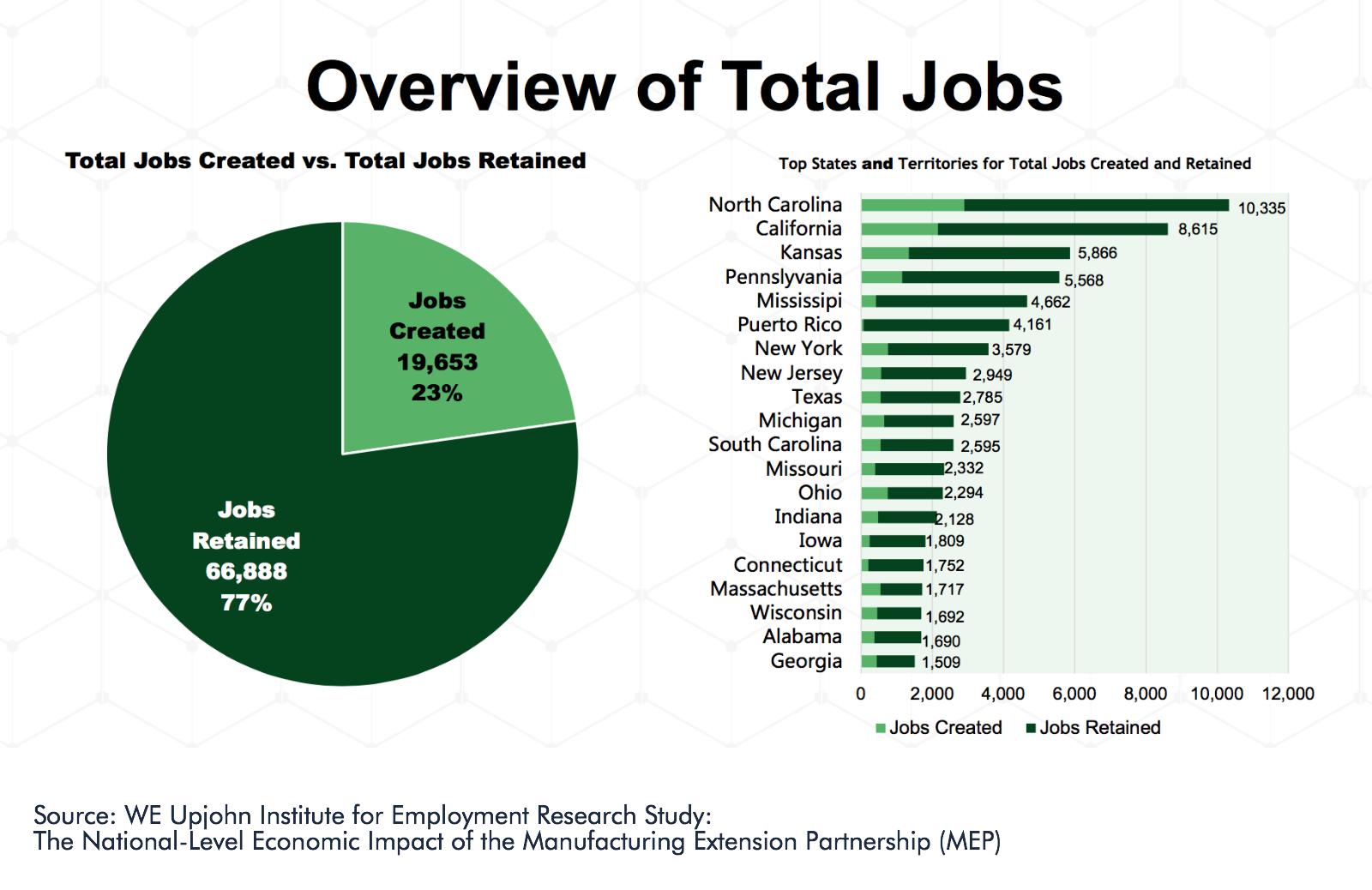Published 22 June 2017
The secret to the success of Michele's Granola is more than a great product. Also instrumental was a little-known, decades-old government initiative “the Manufacturing Extension Partnership (MEP) program” aimed at helping small and medium-sized manufacturers grow.
From Hobby to Vocation
Walk into Michele’s Granola factory in Timonium, Maryland, and you’re immediately embraced by the warm aromas of toasting oats, brown sugar and vanilla. The facility produces 2,500 pounds of granola a day in eight different flavors – from classic vanilla almond to more exotic flavors like pumpkin spice and ginger hemp. This granola is not the heavy, sticky mass-produced stuff you bought at the supermarket and then find months later, forgotten in the back of your pantry. It’s airy, light and practically crackles in your teeth.
“The granola has a very unique texture,” said company founder Michele Tsucalas. “We use just five to seven simple ingredients – nothing you wouldn’t find in your home kitchen.”
Tsucalas began baking her own granola more than a decade ago, experimenting at home as a weekend distraction from her day job as a nonprofit fundraiser. Once her recipe was perfected, she started selling her granola at farmers’ markets in northern Virginia and then at a food co-op in Maryland. Sales started catching fire, and today you can find Michele’s Granola in a dozen states, including at Whole Foods stores throughout the mid-Atlantic United States and in Wegman’s stores in the northeast. Since that first farmers’ market in 2006, Tsucalas’s business has grown from a one-woman concern operating out of leased space in a commercial kitchen to a sleek boutique business with 35 full-time workers.
Recipe for Success – Manufacturing Extension
The secret to her success is more than a great product. Also instrumental was a little-known, decades-old government initiative – the Manufacturing Extension Partnership (MEP) program – aimed at helping small and medium-sized manufacturers grow.
Created by the Omnibus Trade and Competitiveness Act of 1988, MEP was originally intended to goose the U.S. manufacturing industry, then feared to be losing ground to competition from Japan. Using both federal and state dollars, MEP centers were established in each state to help U.S. manufacturers – and small and medium-sized businesses in particular – become more efficient, innovative and produce better-quality products. Now administered by the National Institute of Standards and Technology at the Department of Commerce, MEP has since become one of the federal government’s most effective and cost-effective job creation programs.
Business Gets a Hand Up, Not a Hand Out
In the case of Michele’s Granola, Maryland MEP help Tsucalas plan the expansion of her manufacturing operation from a 3,000 square foot space she was rapidly outgrowing to the 11,500 foot facility she runs today in a Timonium industrial park, just a few miles north of Baltimore.
“This space was just a shell – there was nothing in here,” said Tsucalas. “I had a general idea of workflow and what our operational needs are, but wanted to build it out specifically for the type of operation we were trying to scale.” Maryland MEP supplied Tsucalas – at a deeply discounted rate – with an industrial engineer, David Rizzardo, who helped her design her new space.
“He and I worked for months to design this facility,” Tsucalas said. “He used CAD designing software to actually lay out the space for us. He told us how much space we needed for things like walking aisles, where the sinks would go, where all of the walls would go, where we would put the equipment in and how we would divide the space.” Rizzardo also helped Tscucalas space comply with federal safety regulations and state licensing standards.
“It was all at an incredibly affordable rate,” said Tsucalas. “The alternative would have been to pay a private architect, but because of Dave’s experience in manufacturing operations specifically, I think we got a better result.”
Tsucalas said she’s been able to both reduce costs and expand her workforce. “We now have warehouse space so we can bring in truckload quantities of our ingredients and really save money,” she said. Dedicated space for baking and packaging also now means that she can hire full time staff specialized in these parts of the production process. “When we had to use the same space for baking and packaging, most people only had part-time opportunities because we didn’t have a full day’s worth of work,” said Tsucalas. “We were able to convert a lot of part-time jobs into full-time jobs when we moved to this facility.”
Since expanding her operation with Maryland MEP’s help two years ago, Tsucalas said she’s added 20 full time jobs and is set to exceed $3 million in revenues this year.
A Good Return for the Investment
Tsucalas’s story is not an anomaly. In fiscal 2016, the program created at least 142,381 jobs and brought $1.13 billion to the Treasury in net revenues through its work with small and medium-sized manufacturers, according to a study by the Upjohn Institute. Since the federal government only provides about $130 million in funding every year, that’s a return on investment of nearly 9:1, according to Upjohn’s analysis. “The return on investment seems pretty good based on the dollars invested,” said Jim Robey, lead researcher on the Upjohn study.

While some MEP centers are state agencies, as is the case in Virginia, others are independent nonprofits. In all instances, the centers are partly funded through state and federal grants and by the fees clients pay for MEP center services. Among other services, MEPs have helped small manufacturers make their production processes more efficient, comply with federal and state regulatory standards and even assist with strategic planning and marketing.
Nor is Tsucalas’s story unique among MEP clients. According to its latest annual report, the Maryland MEP – set up as independent nonprofit funded through both federal and state grants and client fees – worked with nearly 50 small and medium-sized companies in the state. Together, client companies reported increased sales of $7.4 million, new investments of $6.0 million and 352 created or retained jobs.

Likewise in Virginia, the state’s MEP agency – called GenEdge – is currently working with 200 clients in the state. Executive Director Bill Donohue said that according to client surveys, the program has helped manufacturers create or retain 11,000 jobs since 2000 and generate $2 billion in additional sales. Yet the agency only receives about $1 million a year from the federal MEP program and only about another $1.5 million from the state.
Among the agency’s beneficiaries is Mikro Systems, Inc., based in Charlottesville, which manufactures high-tech components for jet engines, CT scanners and turbines used in power plants. Co-founder Jim Atkinson says GenEdge helped the company streamline scale up its operations from the 12 employees it had in 2007 to the more than 90-employees it has today. Along the way, the company also agreed to license its manufacturing technology to Siemens Energy – on the condition that Siemens build its manufacturing facility in Charlottesville. That facility, said Donohue, now employs more than 70 people and manufactures components for turbine blades that are shipped around the world.
“I would say that we would be several years behind where we are now if we didn’t have GenEdge helping us,” said Atkinson.
“MEP continues to support us,” said Tsucalas of Michele’s Granola. “They check in with us and find every way possible to promote us. It’s been a long-term relationship.”
A modified version of this piece first appeared in the Washington Monthly.
Feature image credit: Justin Tsucalas (Michele); Washington Monthly
© The Hinrich Foundation. See our website Terms and conditions for our copyright and reprint policy. All statements of fact and the views, conclusions and recommendations expressed in this publication are the sole responsibility of the author(s).




